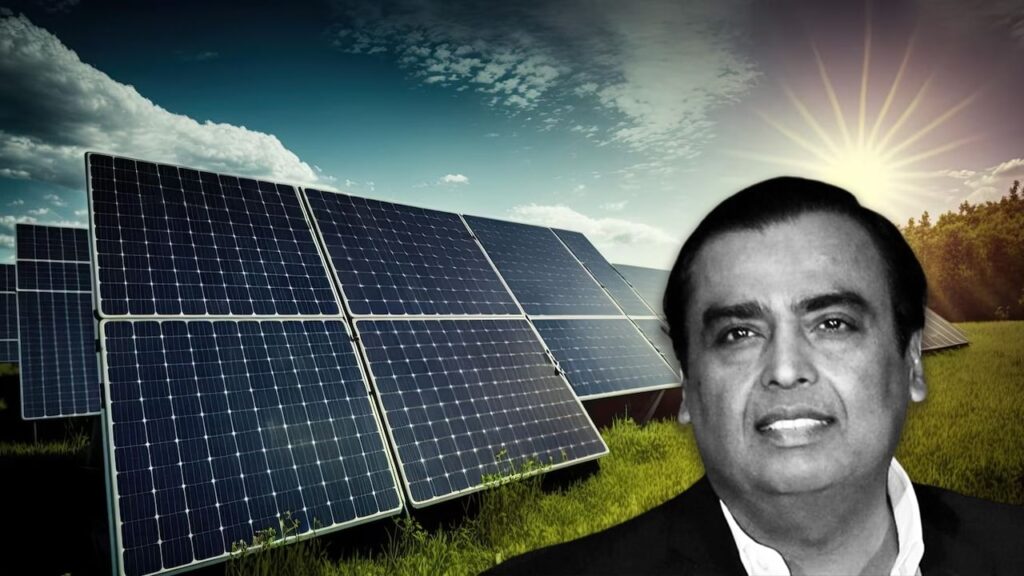The rise in electricity bills has prompted the Indian government to introduce the PM Surya Ghar Muft Bijli Yojana. This initiative aims to provide households with 300 units of free electricity per month. In a significant development, Reliance Industries, India’s largest company, is poised to play a crucial role in the successful implementation of this scheme. During the 47th Annual General Meeting (AGM) held on Wednesday, Mukesh Ambani made an announcement that could be pivotal for the scheme.
The PM Surya Ghar scheme incentivizes homeowners to install solar energy plants on their rooftops by offering subsidies from both the central and various state governments. A vital component of this initiative is the solar panels themselves, which is where Mukesh Ambani and Reliance Industries come into the picture.
Reliance Industries to Manufacture Solar Panels Domestically
Mukesh Ambani, Chairman of Reliance Industries Limited, stated that the company is making rapid strides towards green energy initiatives. For some time now, Reliance has been working on producing solar modules domestically, and production is expected to commence at its giga-factory in Jamnagar, Gujarat, by the end of this year. This facility will be the world’s largest solar panel manufacturing plant, positioning Jamnagar as the “Energy Capital” alongside the world’s largest refinery.
Production Capacity and Capabilities
Ambani announced that the initial production capacity of this solar giga-factory will be 20 gigawatts. The design of the factory allows for rapid scaling of production capabilities. Notably, this facility will not only manufacture solar photovoltaic cells but will also produce essential components used in solar panel manufacturing, including wafers, ingots, polysilicon, and glass, all under one roof.
Supporting the PM Surya Ghar Initiative
Reliance Industries’ commitment to this project is expected to significantly contribute to the goals of the PM Surya Ghar Muft Bijli Yojana. This initiative will create a sustainable supply of domestically produced solar panels to support the scheme.
Future Plans: Lithium Battery Production
In addition to solar panel manufacturing, Mukesh Ambani also revealed plans to produce sodium-ion cells at the megawatt level by 2025 and to launch a pilot project for lithium battery cells with an annual capacity of 50 megawatts by 2026. Reliance announced in 2021 that it intends to develop a new energy business based on renewable energy, with an investment of $10 billion over the next three years, aiming for an installed capacity of 100 gigawatts by 2030.
Infrastructure Development in Gujarat
This ambitious plan includes establishing four large factories in Jamnagar for the production of renewable energy equipment, battery storage solutions, energy cells, and hydrogen manufacturing. Once operational, Reliance’s renewables business is expected to generate earnings within five to seven years that match those of its existing petrochemical operations.
Significant Land Acquisition for Renewable Energy
Additionally, the company has secured a lease on barren land in Kutch, which is projected to generate approximately 150 billion units of electricity over the next decade. This output will account for nearly 10% of India’s energy needs, underscoring the critical role that Reliance will play in shaping the future of renewable energy in the country.

